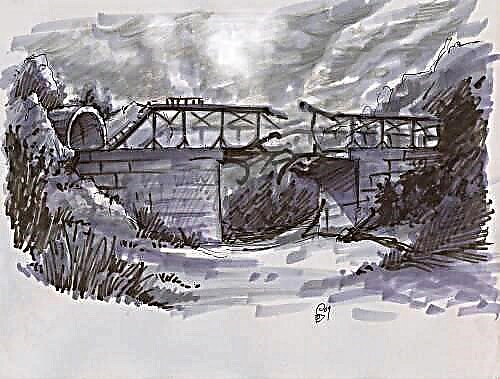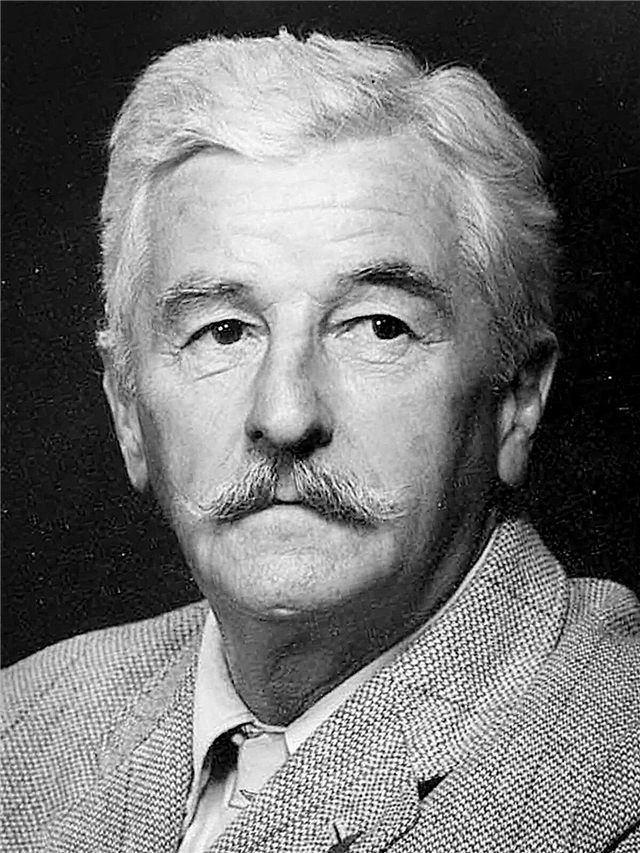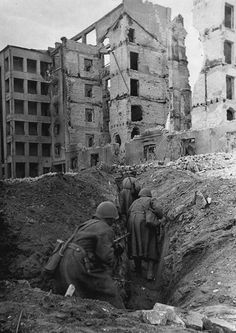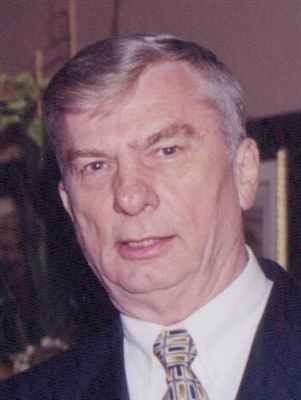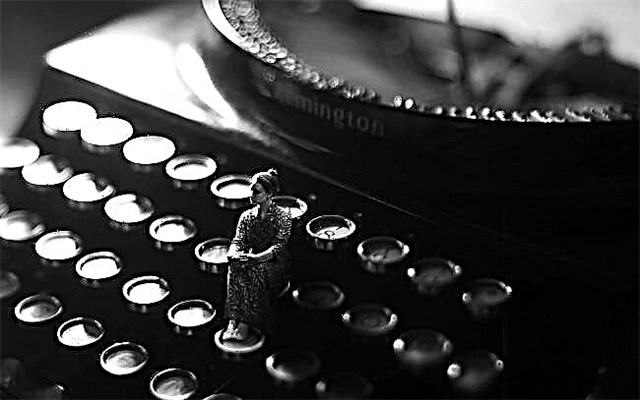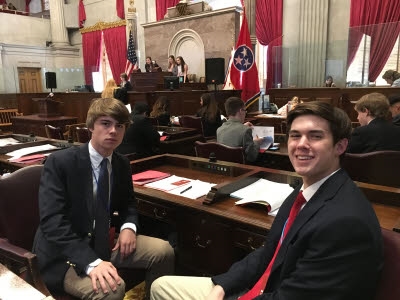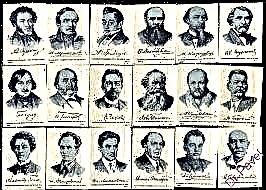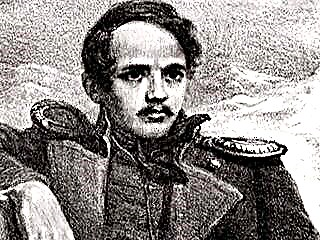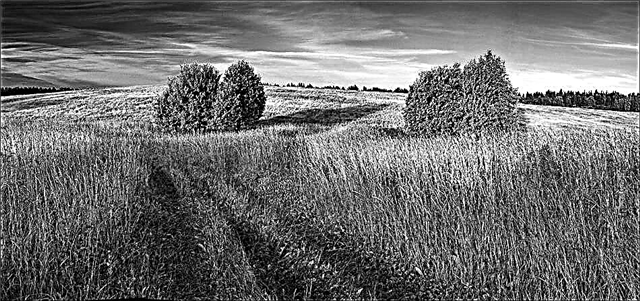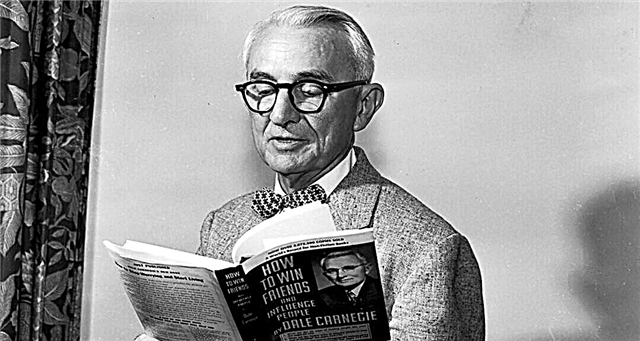Handke's work is written in the first person. We will never know the name of the narrator. There are not many external events in the story. It presents a free chronicle of several days, which are marked for the hero by a severe spiritual crisis. A young writer from Austria, he came to America, driven by an intolerable state of hopelessness. The reason is a months-long conflict with his wife, which has grown into a desperate, incinerating hatred of people closest to each other. This enmity drained and devastated the hero. He is experiencing a deep depression that colors the entire perception of the world. Words seem strange and expressionless. Time flows as if in different dimensions. Lost in a foreign country, where he is no more than a human unit, nobody needs and not interesting, for him salvation. However, at the very first hotel where he stayed, he was sent a letter from Judit: “I am in New York. I do not advise you to look for me. It could end badly. ” The writer reads these lines with a sense of horror. He understands that his wife is pursuing him, that she and he moved to another continent in order to continue their mutual torture here,
The writer has three thousand dollars. This is all that he owns, as the wife withdrew the remaining money from his account. For a while he should be enough. And so he moves from city to city, changes the hotel behind the hotel, completely left to his own devices and immersed in his own experiences. In his mind, childhood memories emerge, either their details from Judit's quarrel, or some volatile impressions of the day. The structure of his feelings and thoughts gives out an extraordinary person, creative and intellectual, incredibly tired of his own reflection and has lost the meaning of life.
There is a strange logic in his movements. On the one hand, he is afraid of meeting his wife, on the other - this is what he is aiming for. He is trying to figure out where Judit was staying on the postmark, phoning the hotels, persistently leaving his phone numbers so that his wife could find him. In all this, a painful, suicidal dependence on hatred tormenting him is felt. In the issue, the writer reads Fitzgerald’s novel “The Great Gatsby,” and quiet peace settles in his soul for a while. He wants to arouse in himself the feelings characteristic of the Great Gatsby - “warmth, attentive attentiveness, calm joy and happiness”. But his consciousness remains "deserted." In this state, he comes to New York, which beholds "as an innocent natural phenomenon." Then his path lies in Philadelphia, as there is a trace of his wife.
Wandering the streets, bars and cinemas, he continues to meditate unsystematically - mainly about his own life. Why, for example, does he never experience the inherent joy of nature? Why doesn't she bring him feelings of freedom and happiness? The hero explains this with the circumstances of his own rural childhood, a difficult and poor experience. “From childhood I was pushed into the countryside only to work,” he realizes with calm bitterness. “... I could never afford anything there.” For the same reason, fear was the strongest childhood emotion - an act of knowledge was forever associated with it. The hero understands that in his books the world is reflected as if in a crooked mirror, that he is more concerned with the process of decay than living creation. "The ruins have always interested me more than at home."
Only with the advent of Judith did the hero experience real feelings. Obviously, for some time they were truly happy, but now there was nothing left between them except violent hatred. The writer recalls that in the last six months he did not name his wife other than “creature” or “creature”. He admits that he possessed a persistent desire to strangle her. Their hatred went through various painful stages, while they could not part and painfully needed each other's presence. “What a miserable life it was! .. Enmity turned into a voluptuous, intoxicating alienation. I spent days lying in my own room a log a log ... "
After several days of complete loneliness, the hero calls a familiar American woman living near Philadelphia. She is a translator from German. Three years ago, on his first visit to America, they were blinded by a short passion. Claire offers to go to St. Louis, where she is going with her daughter.
Again the road - this time by car. Claire is driving. Her daughters are only two years old. “Her child is not from me,” the hero remarks on this subject. The girl has a strange name - Delta Benedictine. During the day, they drive three hundred kilometers, put the girl to bed and sit down next to take a breath. The hero tells Claire that he is reading Keller’s novel “Green Henry,” she listens, struggling to overcome fatigue. The next day they continue on their way. Gradually, the hero embraces a growing sense of relaxation and freedom. He mindlessly watches the landscapes flickering outside the window - first Ohio, then Indiana, then West Virginia. Their relationship with Claire is full of simplicity and naturalness. The girl with her funny quirks lives next to her touching serious life. Claire talks about America - that this country seeks to preserve its historical childhood, that the lunatics here strew with dates of national victorious battles. And she also remarks that she doesn’t have her own America — like a hero — which she could go to in case of need ... During one of the stops, when the hero went for a walk with the girl in his arms, he suddenly almost got bogged down in the swamp. It happened all of a sudden. Having made an effort, he got on a bump in one boot ...
Finally, they reach St. Louis, where they are staying with Claire's friends, artists. This couple is notable for the fact that for ten years of marriage they have not lost some primordial love and “convulsive tenderness”. Communication with each other is for them the content and meaning of being. "Our tenderness," the hero remarks about himself and Claire, "was that I talked a lot, and Claire listened and occasionally inserted something." They help the owners paint the house, walk, take care of the girl, take an entertaining walk along the Mississippi on the Mark Twain steamer in the community of local residents.
“In those days, I first learned what real cheerfulness is ...” the hero reports. “With extraordinary power, I felt the universal bliss of life without convulsions and fear.” And in this atmosphere typical of Central America, he possesses a healing desire for simplicity and fullness of life. He wants to find such a “routine and such a way of life that you can just live in a good way." Slowly, through the most basic values of being, he gains a sense of ownership of the world and the restoration of broken ties. Claire in one of the conversations compares him with Green Henry - he also only "watched the course of events, but he did not get stuck ...".
In St. Louis, the writer receives news from Judit - she arrives just on the day of his thirtieth birthday. On a card with a typographic inscription: "Have a happy birthday!" postscript made by hand: "Last". The hero suddenly clearly understands that they decided to kill him, and, oddly enough, this calms him a little, as if there was nothing more to fear. On those same days, he was watching John Ford's Young Mr. Lincoln movie alone. In this film, he is experiencing sincere excitement, is fond of and discovers America. He is most admired by the example of Lincoln, his authority and ability to convince people. Especially in the episode when Lincoln, as a young lawyer, defended two farmer brothers from unjust accusations of killing a policeman. The writer's heart shrinks with delight, and he also wants to realize himself "entirely, without a trace."
Then the hero says goodbye to Claire and travels to Oregon.
It is raining, it is surrounded by a feeling of absolute emptiness. He intends to meet with his brother Gregor, who left for America many years ago and has since been working at the local sawmill. First he comes to his empty and wretched dorm room. There is no brother. In the morning, the hero goes straight to the sawmill. The meeting, however, did not take place. When the writer sees Gregor, he sits under the spruce as needed. The hero turns and walks away ...
Judit's aggressiveness, meanwhile, is increasing. First, a parcel comes from it, which turns out to be an explosive device. Then the hero discovers that in the room, instead of water from the tap in the bath, sulfuric acid flows. Each time he is on the verge of death. Finally, the wife organizes the robbery of his flock of Mexican boys ...
The hero is convinced that a close denouement is inevitable. Having received another postcard depicting the town of Twin Rocks on the Pacific coast, he without hesitation, for the last money, goes there. Alone, he sits on the shore and thinks about how far he went in his estrangement. Something makes him look back - he turns his head and sees Judit, who is aiming at him from a pistol. Shot. The hero seems that everything is over, and he is surprised at the simplicity of what happened. However, he is alive and not even injured. "With frozen faces, like two idols, we were approaching each other." Judit drops the gun, screams loudly and desperately, then cries. The hero gently hugs her, then picks up a weapon and throws it into the sea.
... The last episode of the story is a visit by the writer along with Judith John Ford to his villa in California. The great filmmaker at the time of the meeting described is seventy-six years old. His whole appearance is full of calm dignity and unobtrusive interest in life. He explains to his guests-Europeans the features of America as a nation and the human community: “We always say“ we ”, even when it comes to our personal affairs ... Probably because for us everything we do is part one big thing ... We don’t rush about our “I”, like you Europeans ... In America, ”he continues,“ it’s not accepted to puff up and not to shut oneself. We are not longing for loneliness. ” So says Ford, not at all idealizing his country, but wanting to show its difference and pay tribute to it.
Then he turns to the guests and asks them to tell "their story." Judit honestly admits that at first she furiously pursued her husband, and now they decided to just leave quietly and peacefully,
Ford laughs and asks, “Is this true?”
“Yes,” the hero confirms. “That was all.”

